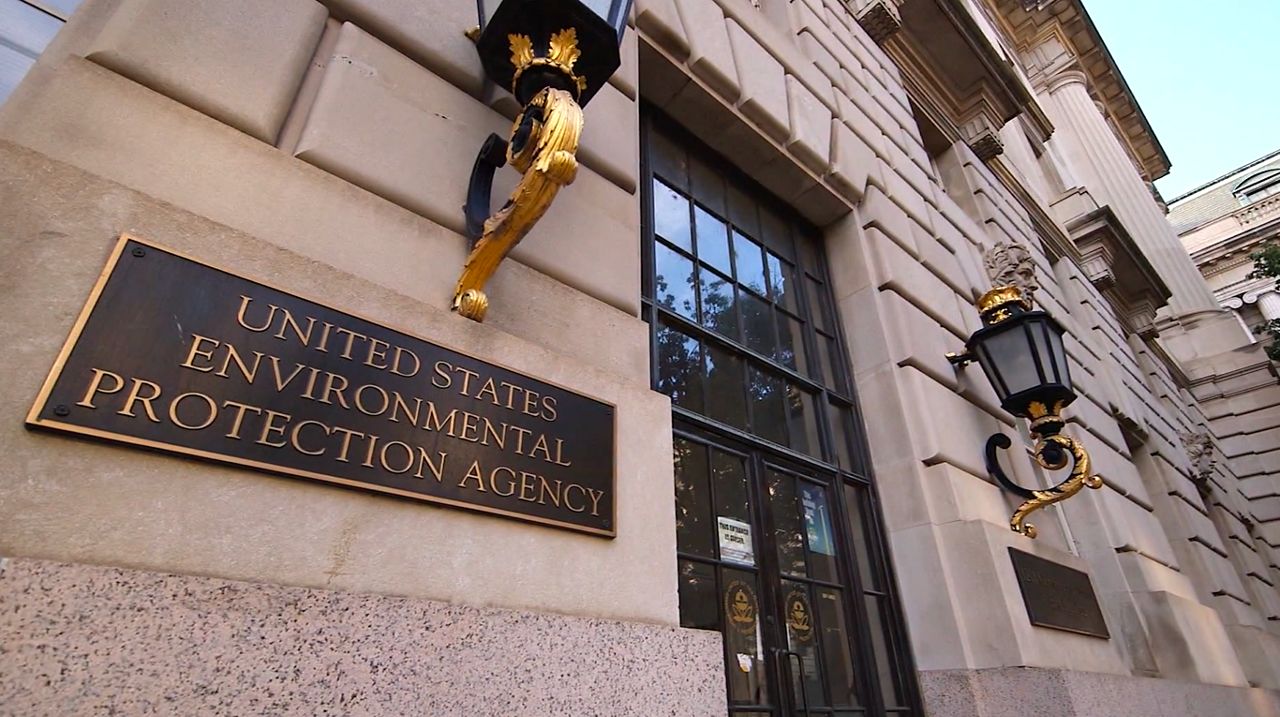A Republican and a Democratic member of Congress have introduced legislation that would update the Camp Lejeune Justice Act by helping increase the speed at which victims' cases are heard.
President Joe Biden signed the Camp Lejeune Justice Act in August 2022. It was a larger piece of the PACT Act.
The legislation allows victims of toxic water at Camp Lejeune from decades ago to take legal action against the federal government. The government acknowledges the chemicals have caused illnesses such as Parkinson’s disease and cancer. The victims are spread out around the country.
But since the legislation was signed, a series of concerns have surfaced, including the small number of victims who have so far received financial settlements from the government.
The Navy said it has received 225,595 claims but only 63 offers have been extended and just 32 accepted.
“That is absolutely unacceptable,” said Rep. Deborah Ross, a North Carolina Democrat.
Ross and North Carolina Republican Rep. Greg Murphy introduced the Camp Lejeune Justice Corrections Act on Thursday to expedite the cases that are headed to court.
The bill would clarify that victims have the right to jury trials, and it also would extend the jurisdiction of Lejeune cases from the Eastern District of North Carolina to the larger Fourth Circuit.
“All of these cases are being jammed up in the Eastern District of North Carolina. It would be years and years and years before people would get the relief that they’re owed. And many of them might pass away in the meantime,” Ross said. “We want to make it so more courthouses can hear these claims, and so that we can get this process moving as quickly as possible for people who have been injured.”
The legislation also addresses a lack of caps on how much attorneys can charge.
Jerry Ensminger spent years in the Marine Corps and his daughter was conceived and born at Camp Lejeune. At the age of 6 she was diagnosed with leukemia, and in 1985 she died shortly after her ninth birthday. He has spent years as an advocate for Lejeune water victims.
He said he’s heard of lawyers charging rates as high as 50% and 60%.
Ensminger said he understands attorneys need to charge significant percentage rates but calls those numbers “ludicrous.”
The bill would put in place a 20% cap on any settlement entered before a civil action and 25% of any judgement rendered or settled after a civil action. They’re the caps currently enforced by the Department of Justice.
“We’re not taking one side or another. We’re taking what the practice has been through experience, and just making that the standard,” Ross said.
“The Camp Lejeune Justice Act was established to rectify the injustices our veterans faced and streamline their access to rightful claims,” Murphy said in a statement. “However, many still struggle to benefit due to unforeseen obstacles… These updates will help alleviate the backlog of cases, ensuring timely resolution and closure for all that have been affected.”
Ensminger said without the changes people sickened will continue to get worse and the stain on the military will only grow.
“Have you seen in the news where the United States Department of Defense, our branches of military, are having trouble recruiting,” Ensminger said. “I can understand why, really I can. All you have to do is look at the Camp Lejeune issue.”
The Navy, which handles the administrative claims, has previously said adjudicating the cases is time-consuming.
It recently introduced a plan to expedite the claims. But Ensminger said that voluntary elective option is far from adequate for the financial burden victims suffered from the toxic water.
The bipartisan House bill includes North Carolina co-sponsors Democratic Rep. Don Davis, Republican Rep. David Rouzer, Democratic Rep. Kathy Manning, Republican Rep. Richard Hudson, Democratic Rep. Jeff Jackson, Republican Rep. Patrick McHenry and Republican Rep. Chuck Edwards.
There is current legislation in the Senate that would put in place attorney caps but with different rates.









